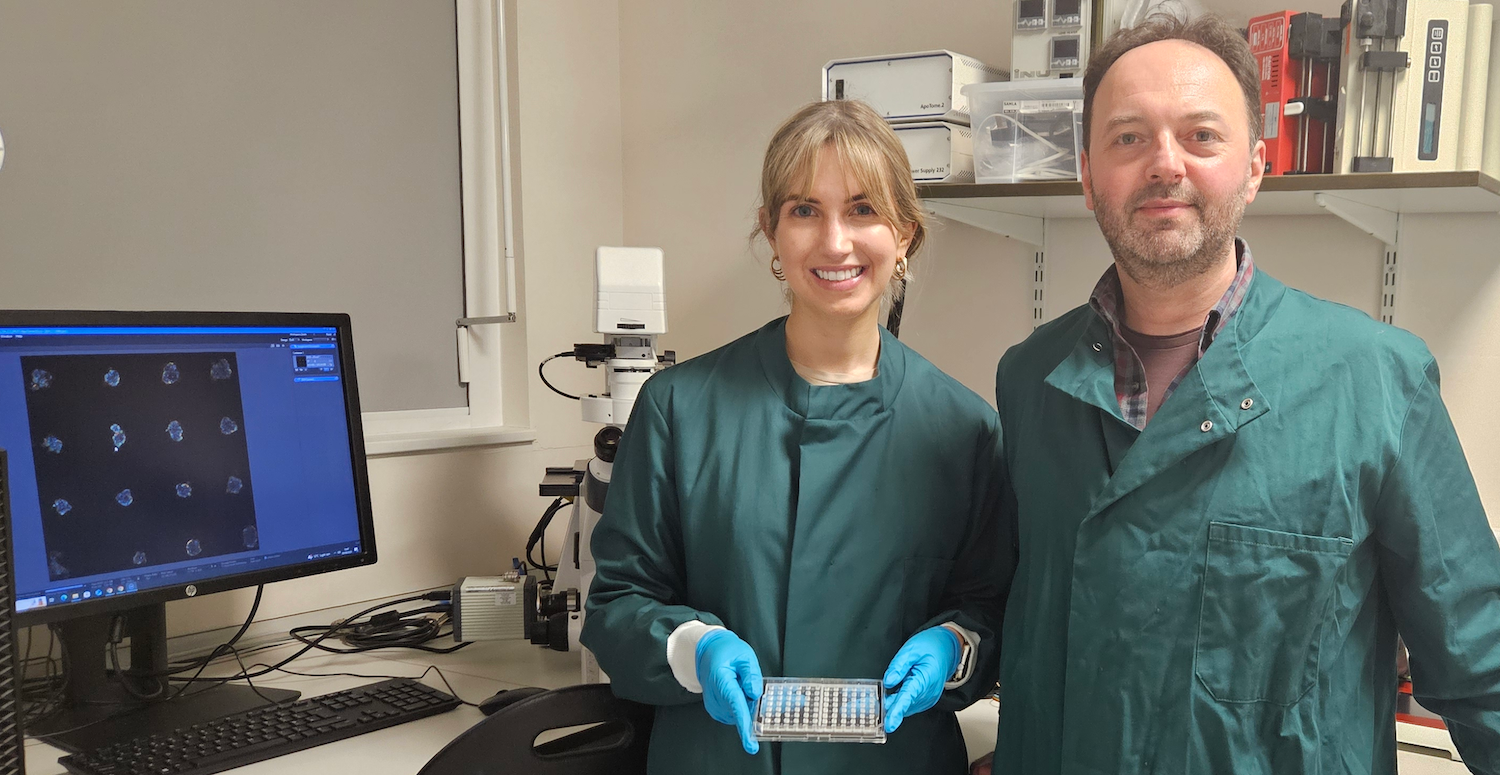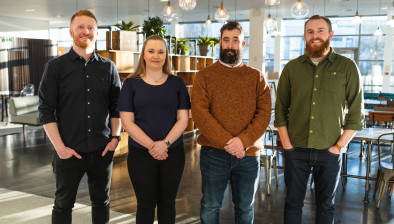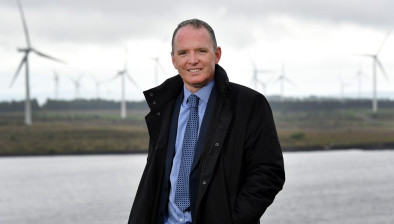TRICAPITAL Angels leads £750k investment into breakthrough technology set to accelerate cancer treatments

ScreenIn3D's Karla Findlay Paterson and Prof Michele Zagnoni
A pioneering Scottish technology that could dramatically speed up the development of life-saving cancer treatments has secured a £750,000 seed investment.
ScreenIn3D, a spin-out of the University of Strathclyde, has developed a groundbreaking “lab-on-a-chip” system that allows drug developers to test dozens of cancer therapies on tiny patient-derived tumour samples – offering a faster, easier and more accurate alternative to animal testing.
The funding round was led by TRICAPITAL Angels Ltd, and included participation from existing investors Gabriel Investments, Scottish Enterprise and the University of Strathclyde, plus German investor Nidobirds Ventures, and private individuals.
Founded by academic engineer Professor Michele Zagnoni and life science tools’ veteran Alex Sim, ScreenIn3D’s technology dramatically increases the number of drug tests that can be carried out on extremely small – and therefore precious – samples of human tissue.
This offers drug developers vastly more data from early testing phases, helping them to identify effective new drugs earlier, reduce failures in clinical trials, and bring therapies to market faster.
Prof Zagnoni, CEO of ScreenIn3D, said: “This technology has the potential to transform how cancer drugs are developed.
“Patient-derived tumour tissue is one of the most valuable resources in drug development, yet its use is often limited by cost and scarcity.
“Our technology changes that, making it possible to run a high volume of tests on minimal samples. This opens the door to faster discovery of effective drug combinations, with fewer failures along the way.
“By enabling accurate, high-throughput testing on real human tissue, we can improve success rates, cut development times, and reduce reliance on animal testing – ultimately getting better treatments to patients faster.”
The technology builds on more than a decade of research at the University of Strathclyde and has already been validated in preclinical oncology.
Moray Martin, CEO at TRICAPITAL Angels, said: “ScreenIn3D is a standout example of the high-impact, deep-tech innovation that’s putting Scotland on the map.
“Their technology addresses a critical global issue - the need to reduce the gestation time and cost of drug development – and is backed by strong scientific credibility.”
Anne Henderson, head of investment at the University of Strathclyde, said: “ScreenIn3D is an excellent example of how academic research can translate into pioneering solutions with global reach and meaningful societal impact, and we are proud to support it through our Strathclyde Inspire Investment Fund.
“As a socially progressive and values-led institution, Strathclyde is committed to fostering an environment where transformative ideas can grow into successful ventures, reinforcing our position as a leader in innovation and entrepreneurial excellence.”
With this investment, the company will expand its applications beyond cancer to other disease areas including women’s health, immune therapies and fertility treatment – all areas where access to accurate, human-relevant testing models is critical.
ScreenIn3D is already generating revenue, with both bio-pharma companies and cancer centres using the platform. The company will grow its headcount from five to eight as it scales its operations and deepens industry partnerships.
The investment deal follows a record-breaking year for TRICAPITAL Angels, which completed 18 deals throughout 2024.
Its high-net-worth and ultra-high-net-worth members subscribed more than £3.5 million of their own money into some of the country’s most innovative companies over the past 12 months.
That investment has leveraged close to £30m of investment overall helping to create more than 500 jobs in sectors ranging from artificial intelligence and biotech to renewable energy.







